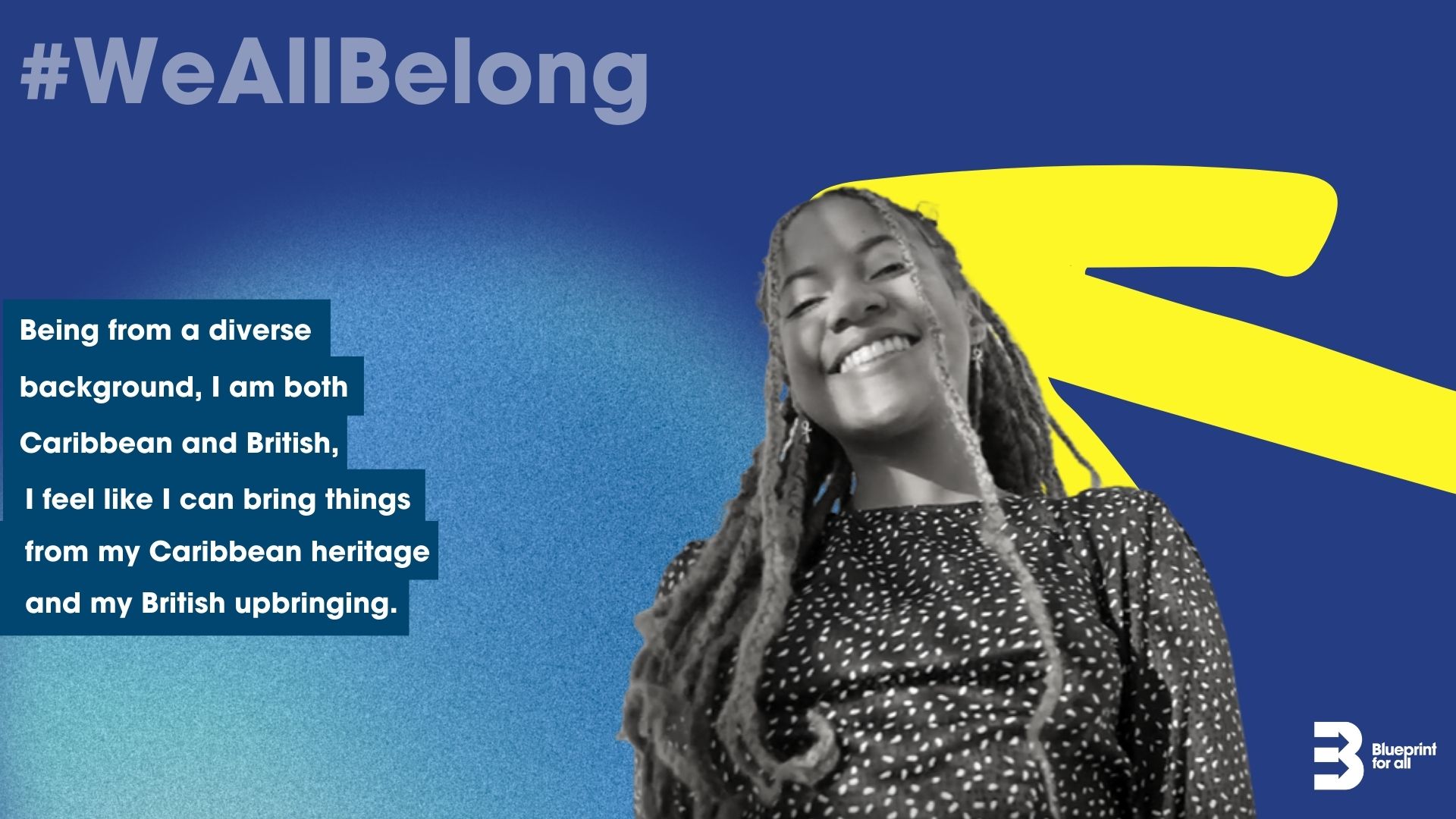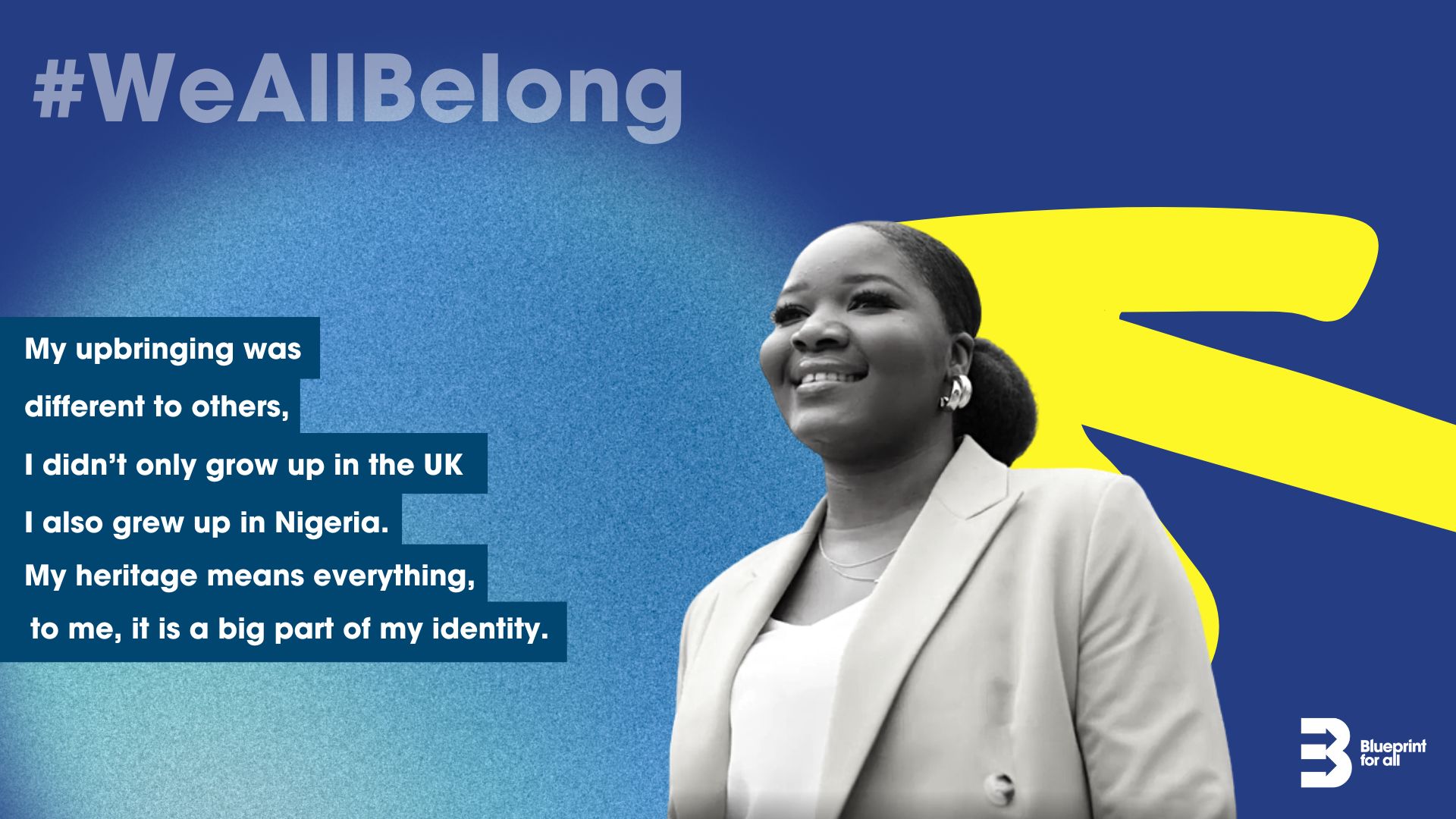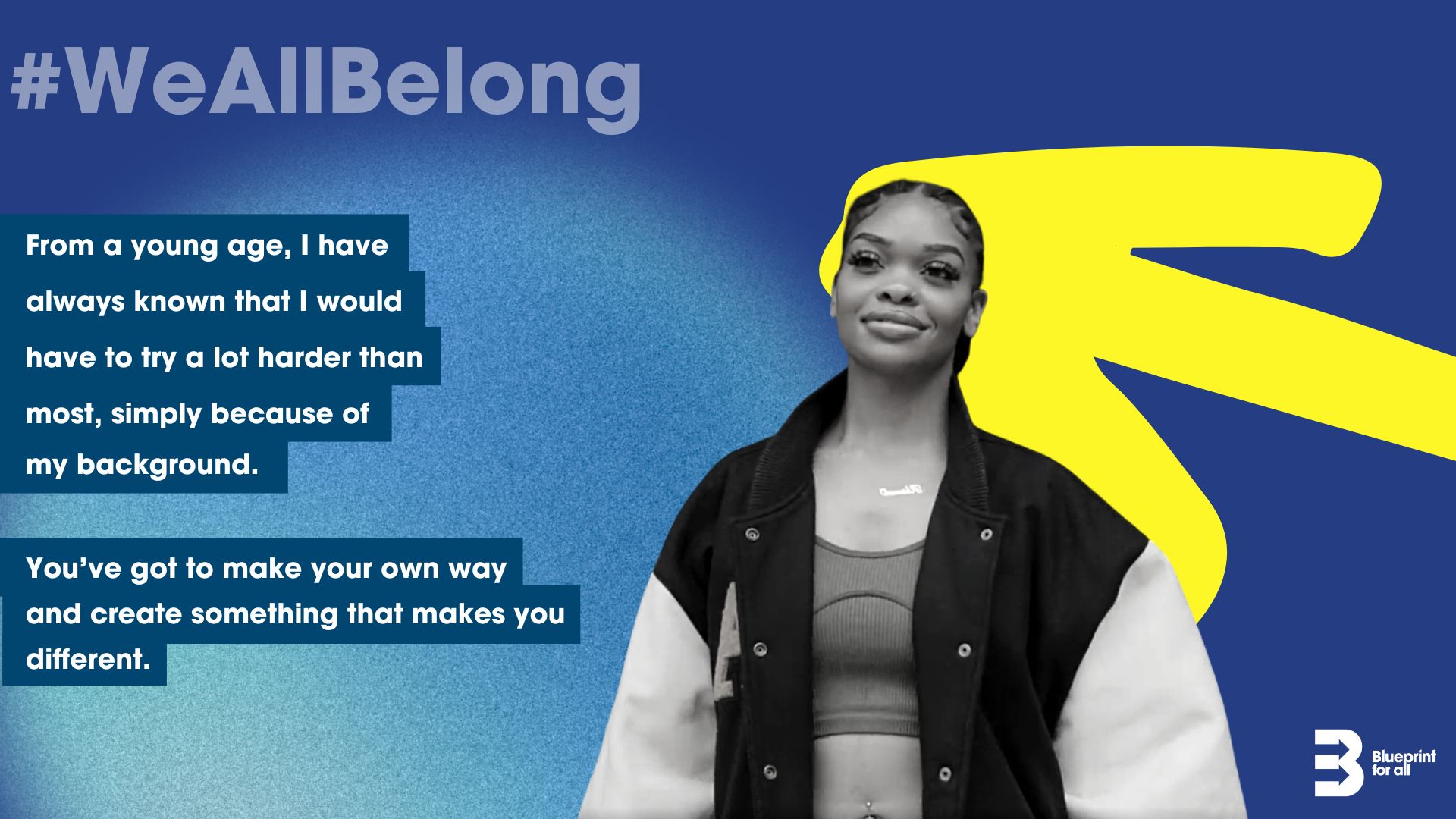In the UK today 40% of London’s population are from diverse backgrounds, so why is it so hard for a large community to find their sense of belonging? This Black History Month, we are focusing on young people of diverse ethnic heritages and their sense of belonging. The word diverse can have so many different meanings, and often in the past the shared name for this community has been decided predominantly from a white voice. Blueprint for All, in 2021 created a report which explores the terminology that young people prefer, hearing the voices of young people, we would like you to join in sharing their voices.
We did this research because we wanted to hear how young adults themselves wish to be talked about in public discourse. We wanted to understand how cultural and racial descriptors are used to provide a positive or negative perception. How does this play out in the public domain? And how does this impact on young adults and their feeling of belonging?
- Young people from our research are confident and proud of their heritage. They navigate their day-to-day lives to avoid experiencing racism as much as possible.
- People of diverse ethnic heritage are often assumed not to be British and are continually asked, ‘where are you from?
- There is a strong desire for a shared name or description to unite people from diverse ethnic heritages. However, there is no real consensus on what that share name or description should be based on current language and terminology.
- Acronyms like BAME/BME are not accepted as appropriate, and their meaning is not well known by the public.
- Descriptive racial and ethnic categories used in The Census are relatively well received. There appears to be a wider understanding and acceptance of the value of The Census and presumed use of the data.
- ‘Mixed race’ was a term that was felt to be too narrowly defined. In particular, the assumption that the ‘mix’ was always ‘white plus another…’. The reality is that mixed ethnic heritage is far more varied, and it’s important to recognise and celebrate that fact.
- Everyday language continues to impact young people’s feelings of belonging in the UK and its usage often excludes rather than includes people. They repeatedly highlighted this undercurrent of racism, for example, there were also many reports of racism following the Euro 2020 final in summer 2021.





